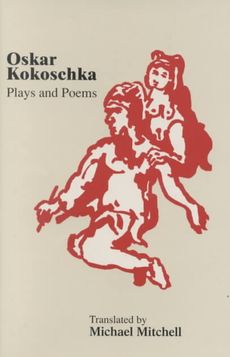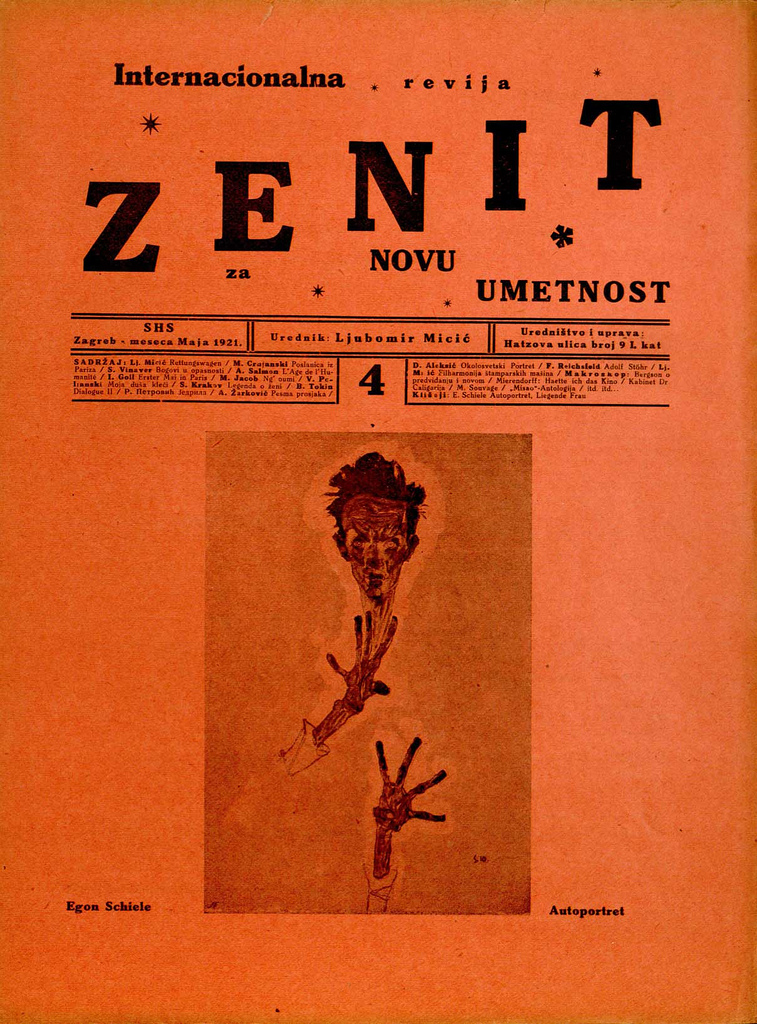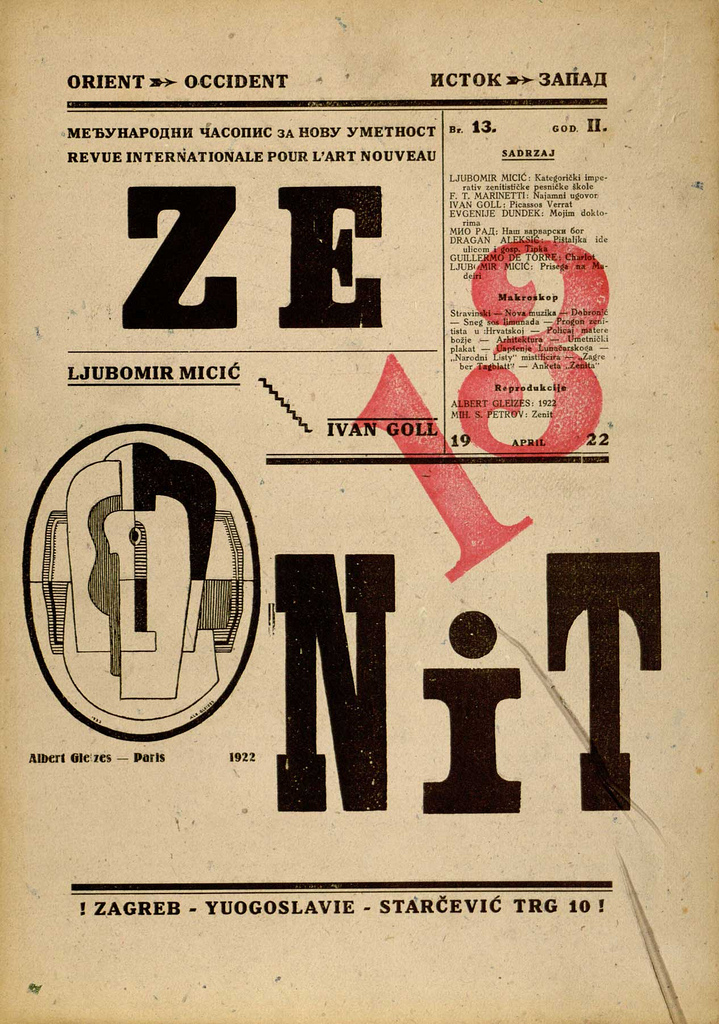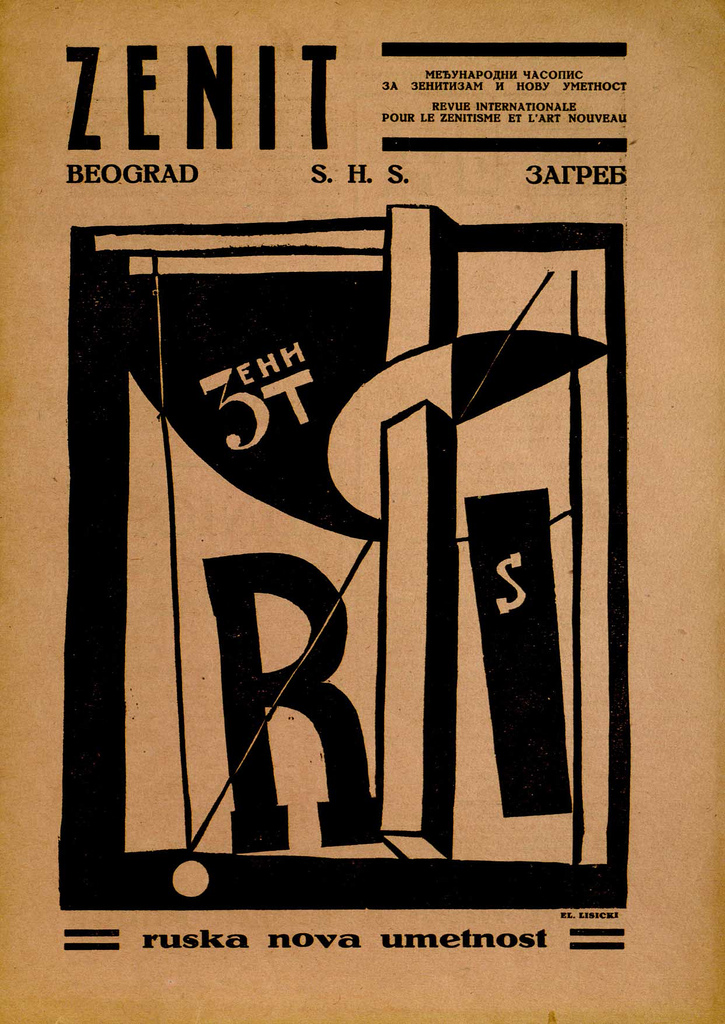Oskar Kokoschka: Plays and Poems (1973/2001)
Filed under book | Tags: · drama, expressionism, poetry, theatre

The well-known painter, Oskar Kokoschka, also produced a considerable and significant body of literary work: plays, a few poems, essays and autobiographical stories. The present volume contains all his plays (some in more than one version) and the poems, plus one short prose passage.
All the pieces in this collection, apart from the play Comenius, were written in the period 1907-1918. The plays, despite Kokoschka’s dislike of the term, reflect the style of Expressionism current in Germany during the period. Indeed, the early ones anticipated and, to as certain extent, helped to define Expressionism. The titles of some – Job, The Burning Bush, Orpheus and Eurydice – reflect the use of the mythic mode. Comenius, which was started in the 1930s and only completed in 1972, is a large-scale historical panorama, focusing on the figure of the Czech humanist and educational reformer, Jan Amos Komenský. Comenius’ fate reflects Kokoschka’s own experience of an increasingly dark world of conflict and oppression. His ideal of a humanity guided by the light of reason cannot find realization amid the strife and carnage of the Thirty Years’ War; at the end of the play it is reduced to a tiny spot of light in Rembrandt’s picture The Night Watch. The Burning Bush, Orpheus and Eurydice and Comenius appear in English translation for the first time.
Originally published as Das schriftliche Werk, Hans Christians, Vienna, 1973-76
Translated by Michael Mitchell
Afterword by Karl Leydecker
Publisher Ariadne Press, Riverside, California, 2001
Studies in Austrian Literature, Culture, and Thought Translation series
ISBN 1572410418, 9781572410411
250 pages
PDF (no OCR)
Comment (0)David F. Kuhns: German Expressionist Theatre: The Actor and the Stage (1997)
Filed under book | Tags: · 1910s, 1920s, avant-garde, cabaret, expressionism, germany, performance, theatre

“German Expressionist Theatre considers the powerfully stylized, antirealistic styles of symbolic acting on the German Expressionist stage from 1916 to 1921. It relates this striking departure from the dominant European acting tradition of realism to the specific cultural crises that enveloped the German nation during the course of its involvement in World War I. The examination of portions of previously untranslated Expressionist scripts and actor memoirs allows for an unprecedented focus on description and analysis of the acting itself.
– Examines German Expressionist theatre from a performance point of view
– Contains previously untranslated portions of Expressionist scripts and actor memoirs
– Looks in detail at key works and productions”
Publisher Cambridge University Press, 1997
ISBN 0521583403, 9780521583404
311 pages
via Charles Turner
review (Anne M. Turner, Journal of Dramatic Theory and Criticism)
Comment (0)Zenit, International Review of Arts and Culture, No. 1-43 (1921-26) [SH/FR/DE/RU]
Filed under magazine | Tags: · art, avant-garde, collage, constructivism, croatia, dada, expressionism, futurism, painting, serbia



Zenit, International Review of Arts and Culture, enjoyed a reputation as the only Yugoslav avant-garde journal, which was part of the international avant-garde scene at the beginning of the 1920s. Its founder, editor and the chief ideologist of the Zenit programme Ljubomir Micić, poet and art critic, intended to introduce social and artistic principles of avant-garde to Croatia and Serbia, particularly constructivism, futurism and Dada.
It was launched in February 1921 and published monthly in Zagreb (1921-23) and Belgrade (1923-26) until December 1926, when it was banned by the authorities. A total of 43 issues were published (including special number dedicated to young Czech artists, and No. 17-18 to the new Russian Art, edited by Ilya Ehrenburg and El Lissitzky), as well as one poster, “Zenitismus”, and one issue of a daily Zenit newspaper dated 23 September 1922.
The magazine brought together a number of collaborators: Marijan Mikac, Jo Klek (Josip Seissel), Vilko Gecan, Mihailo Petrov, Boško Tokin, Stanislav Vinaver, Rastko Petrovic, Branko Ve Poljanski (Branko Micić), Dragan Aleksic, Milos Crnjanski, Dusan Matic and others. Other collaborators and contributors included the French poet Ivan Goll, Alexander Archipenko, Ilya Ehrenburg, Wassily Kandinsky, El Lissitzky, Louis Lozowick, Alexander Blok, Jaroslav Seifert. The visual contributions by Jo Klek and Mihailo Petrov epitomized Zenitist art and painting.
PDF (single issues, PDF)
PDF (all issues, ZIP, 148 MB)

